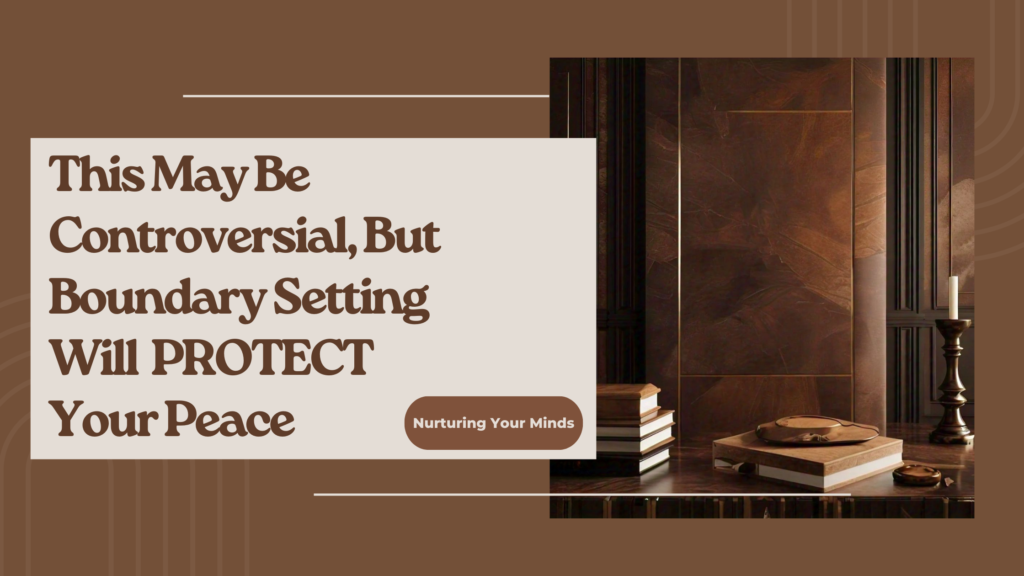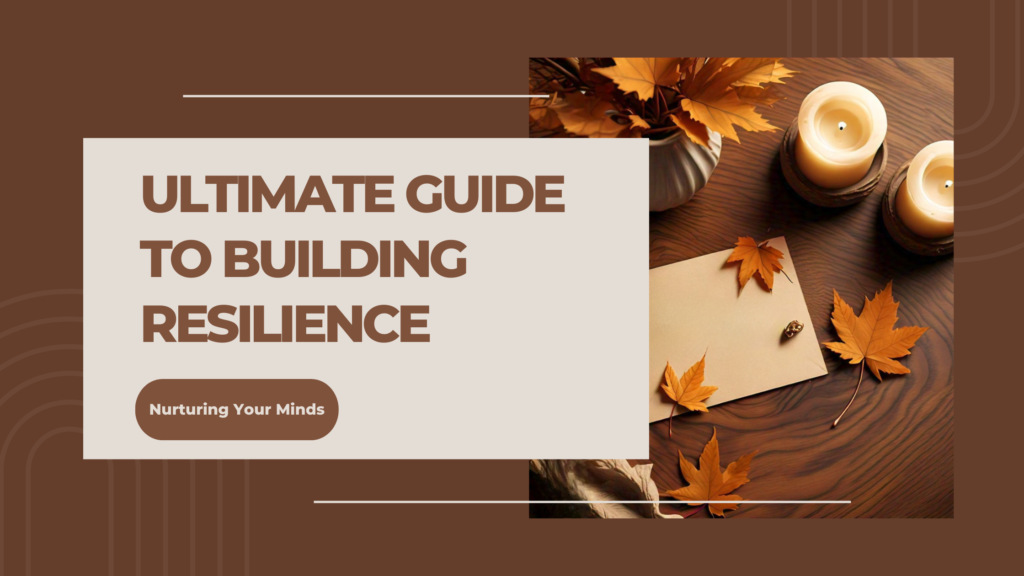Ever felt like you’re drowning in a sea of obligations, with your personal space shrinking by the minute? It’s time to reclaim your sanity with the life-changing power of Boundary setting.
In a world where our lives intersect and intertwine in an ever-increasing digital and physical space, the concept of personal boundaries can sometimes seem like an unattainable dream. Yet, it is these very boundaries; these invisible lines, that protect our mental health, define our relationships, and shape our lives.
The Essence of Boundaries
Boundaries are limits we set to protect our physical, emotional, and psychological well-being. They define what is acceptable and unacceptable behavior from others towards us. Imagine a boundary as a personal property line that marks where your space ends and another’s begins. This depiction is crucial in maintaining a healthy sense of self and preventing feelings of being overwhelmed, used, or disrespected.
The Psychological Need for Boundaries
Psychologically, boundaries are essential for several reasons. They help individuals:
- Protect their self-esteem: Boundaries allow people to maintain a sense of self-worth by setting limits on what they will accept from others.
- Manage stress: Clear boundaries reduce stress by preventing over commitment and ensuring time for self-care.
- Promote autonomy: Boundaries foster independence by encouraging individuals to take responsibility for their own actions and emotions.
- Enhance relationships: Healthy boundaries create a framework for mutual respect and understanding in relationships.
- Emotional Stability: Boundaries protect your emotional well-being by preventing others from violating your emotional space. This is particularly important for empaths and highly sensitive individuals who are prone to absorbing others’ emotions.
Types of Boundaries
Understanding the different types of boundaries is the first step in setting them effectively. Boundaries can be categorized into several types:
- Physical Boundaries: These involve personal space and physical touch. They determine how close others can get to you and what kind of physical interactions are acceptable.
- Emotional Boundaries: These protect your emotional well-being by regulating how much emotional energy you give to others and how you handle your emotions.
- Intellectual Boundaries: These involve your thoughts and beliefs. They allow you to have your own ideas and opinions, even when they differ from those around you.
- Time Boundaries: These help you manage your time and commitments. They ensure that you have enough time for yourself and prevent over commitment.
- Material Boundaries: These relate to your possessions and finances. They dictate how you share or protect your belongings and money.
- Relationship Boundaries: These are rules you set within your relationships regarding communication, expectations, and mutual respect.
The Psychology Behind Boundary Setting
From a psychological standpoint, boundary setting is rooted in self-awareness and assertiveness. Here’s how these two aspects come into play:
- Self-Awareness: Understanding your own needs, desires, and limits is crucial. Self-awareness involves recognizing what you can tolerate and what makes you uncomfortable or stressed. It requires introspection and an honest assessment of your feelings and needs.
- Assertiveness: Assertiveness is the ability to express your needs and boundaries clearly and respectfully. It involves standing up for yourself while also respecting others. Assertive communication is key in ensuring that your boundaries are understood and respected by others.
The Role of Childhood in Boundary Setting
Our ability to set boundaries is often influenced by our childhood experiences. People who grew up in environments where their boundaries were respected and encouraged are likely to find it easier to set healthy boundaries as adults. Conversely, those who experienced boundary violations, such as neglect or abuse, may struggle with setting boundaries later in life.
Children learn about boundaries through modeling and reinforcement. When caregivers respect a child’s personal space, listen to their opinions, and validate their feelings, the child learns that their boundaries are important. This lays the foundation for healthy boundary setting in adulthood.
Signs You Need to Set Boundaries
Recognizing the need for boundaries is the first step towards healthier living. Here are some signs that you might need to establish or strengthen your boundaries:
- Feeling Overwhelmed: Constantly feeling overwhelmed or stressed out can indicate that your boundaries are being breached.
- Resentment: If you frequently feel resentment towards others for taking up your time or energy, it’s a clear sign that boundaries need to be set.
- Guilt: Experiencing guilt for taking time for yourself or saying no is an indication that you need stronger boundaries.
- Burnout: Regularly feeling exhausted and depleted suggests that your boundaries are not protecting you from overexertion.
- Loss of Identity: If you feel like you are losing your sense of self or constantly prioritizing others’ needs over your own, it’s time to set boundaries.
Take these signs serious or you’ll end up with persistent stress throughout your life. But if you’re encountering any kind of stress already, HERE is my detailed and interactive De-Stress Nurturing Program, in order to manage and cope with your stress in a more efficient manner.
Common Challenges in Boundary Setting
Despite the importance of boundaries, many people struggle to set and maintain them. Some common challenges include:
- Fear of Rejection: Many people avoid setting boundaries because they fear rejection or disapproval from others. They worry that asserting their needs will lead to conflict or loss of relationships.
- Guilt: Some individuals feel guilty about setting boundaries, believing that they are being selfish or unreasonable. This guilt can prevent them from advocating for their own needs.
- Lack of Skills: Boundary setting is a skill that requires practice. Without proper guidance and support, individuals may not know how to effectively communicate their boundaries.
- Cultural Influences: Cultural norms and values can impact boundary setting. In some cultures, assertiveness and individualism are encouraged, while in others, collectivism and self-sacrifice are valued. These cultural differences can affect how individuals perceive and set boundaries.
Strategies for Effective Boundary Setting
Setting boundaries is a dynamic process that requires ongoing effort and adjustment. Here are some strategies to help you set and maintain healthy boundaries:
Identify Your Boundaries:
Reflect on your needs, limits, and values. Consider what makes you feel comfortable and what causes you stress or discomfort. Write down your boundaries to clarify them for yourself.
Communicate Clearly:
Use assertive communication to express your boundaries. Be direct and specific about what you need. For example, instead of saying, “I need more help around the house,” say, “I need you to help with the dishes after dinner every night.”
Be Consistent:
Consistency is key in boundary setting. Stick to your boundaries and follow through with consequences if they are violated. This reinforces the importance of your boundaries to others.
Practice Self-Care:
Prioritize your well-being by setting aside time for self-care. This can include activities that relax and re-energize you, such as exercise, hobbies, or spending time with loved ones.
Seek Support:
If you find it challenging to set boundaries, seek support from a therapist or counselor. They can provide guidance and tools to help you navigate this process.
Adjust as Needed:
Boundaries are not set in stone. They may need to be adjusted as circumstances change. Regularly review your boundaries and make changes as needed to ensure they continue to serve your well-being.
Workbooks can also be used in order to practice boundary setting in a more organized and effective manner.
The Impact of Healthy Boundaries
Healthy boundaries have a profound impact on various aspects of life. Here are some ways they can benefit you:
- Improved Mental Health: Boundaries protect your mental health by reducing stress, preventing burnout, and promoting a sense of control and autonomy.
- Better Relationships: Boundaries foster mutual respect and understanding in relationships. They prevent resentment and conflict by ensuring that both parties’ needs are considered.
- Increased Self-Esteem: Setting and maintaining boundaries reinforces your self-worth and validates your needs. It empowers you to take control of your life and prioritize your well-being.
- Enhanced Productivity: By managing your time and commitments effectively, boundaries help you focus on your goals and priorities. This leads to increased productivity and a sense of accomplishment.

Overcoming Resistance to Boundaries
Despite the benefits, some people may resist your boundaries. Here’s how to handle such resistance:
- Stay Firm: Stand by your boundaries even if others push back. Reiterate your needs calmly and assertively.
- Use “I” Statements: Frame your boundaries using “I” statements to emphasize your perspective. For example, “I feel overwhelmed when I have to work late every night. I need to leave work by 6 PM to maintain my well-being.”
- Set Consequences: Clearly outline the consequences if your boundaries are not respected. For example, if a colleague continues to interrupt you during meetings, you might say, “If you interrupt me again, I will need to speak with our supervisor.”
- Seek Mediation: If boundary violations persist, seek mediation or support from a neutral third party, such as a supervisor or therapist.
Conclusion
Boundaries are the invisible lines that shape our lives, protecting our mental health and fostering healthy relationships. By understanding the psychological need for boundaries and employing effective strategies for setting them, we can create a life that honors our needs and values. Remember, setting boundaries is not an act of selfishness but an essential component of self-care and personal growth. Embrace the power of boundaries and watch as they transform your life for the better.
REMEMBER: Taking Action is the ONLY Key to your Betterment and Growth.
TAKE ACTION today, and see the magic!



